You should approach the process with an open mind if you want to flip a property without any money down. There are a number of profitable house flipping strategies, but they all carry a high risk. Recognize what you stand to lose by pursuing profits in order to lower your risks of financial disaster.
Using a lender with hard money is the riskiest choice for property flipping without cash; the safest options are live-in flips or wholesaling using a 0% down mortgage.
How to Renovate a Home Without Any Funds
Without any money, flipping a house requires taking out a mortgage for the full cost of the house plus anticipated repair expenses.
Without a down payment, purchasing a home might be a wise move.for a seasoned investor to utilize purchasing power. But taking on too much debt is usually not a good choice for first-time borrowers.
Here are some methods to think about if you want to take the risk and flip a property without any money.
Beginners in house flipping can apply for a conventional loan and benefit from government-sponsored mortgage programs with no down payment, such as a USDA or VA loan:
Only active military personnel are eligible for VA loans, which have 0% down payment requirements. You cannot utilize a VA loan to finance a dilapidated house because the property must appraise in accordance with VA criteria.
There are no restrictions on house flipping for USDA loans. However, only properties that are eligible for a USDA loan will be financed by the USDA.
A rural location is a requirement for the residence, in addition to an inspection. Your income is limited to 115% of the region median income, and automatic underwriting acceptance requires a financial score of 640. Manual underwriting may allow you to qualify despite a lower score.
If you have some money and are not eligible for these loans, you could learn more by looking into FHA or Fannie Mae mortgages, which need less than 20% down payment.
Loans have tight qualifying standards, although they do provide down payments as little as 3%. In addition to needing a credit score of 620 and completing up to six hours of online homeownership instruction, your income cannot exceed 80% of the typical income in your region.
FHA loans allow for down payments.as little as 3.5%. But you are unable to buy a real fixer-upper with an FHA loan due to its stringent inspection standards.
Getting an FHA loan to buy and ultimately flip a property is probably your best option if you are interested in selling houses without any money and terrible credit. FHA loans are available to those with a minimum credit score of 580 and still qualify to put down a 3.5% deposit.
The most important condition to meet in order to be eligible for these kinds of loans is demonstrating your intention to dwell in the home you buy, often by submitting a letter of purpose to occupy. You must own the house for a minimum of 91 days without selling it again to qualify for FHA loans.
Residing in a house
It may take longer if you’re remodeling with the intention of flipping it, but you stand to gain more and bear less financial risk. In the event that the flip fails to bring in a sufficient profit, you can face difficulties in repaying the loan.
The tax ramifications of your purchases and sales should also be considered. Pay particular attention to the effect of the short-term vs long-term capital gains taxes rate and if you are eligible for the homeowners’ tax exemption. Click here to read more about capital gains.
How to Use a Mortgage to Purchase a Fix to Flip
You should have an agent from real estate on your side if you’re buying a house with a mortgage; they represent you at no cost, and the vendor will cover the buyer’s agent fee along with closing charges.
Mortgage Repossession
Another option to flip a property without any money is to buy properties that may be purchased for less than market value and then resold for a profit.
Hard money lenders, in contrast to conventional mortgage lenders, are more focused on the property’s quality than on your income or credit history. These people or investment firms (https://www.handbook.fca.org.uk/handbook/glossary/G596.html) typically give loans with short payback terms, ranging from several months to three years.
Since the asset serves as security, the loan amount is determined by its value. Additionally, they allow you to finance repairs, and the sum might be included into the loan balance.
But because borrowing through this method is more expensive than financing via banks or governmental lending programs—interest rates can range from 8% to 15%—it’s sometimes seen as a loan of “last resort.”
Hard money loans may be obtained more quickly than standard loans, thus waiting for authorization from a typical lender may cost you the property you desire. When putting in a cash offer on a home, it could be a wise choice to use it as a sort of bridge loan so you can get funding fast.
How Private Money Lenders Operate
The qualifying standards for hard money lenders vary. Depending on the product being supplied, they usually have minimum property valuations and some sort of income verification requirement.
You also won’t be able to obtain the same incentives and interest rates which are offered by government or specialized loans. This is because the qualifications for are usually much less stringent, as they are geared toward helping families buy their first homes, or spurring rural growth.
Private money lenders aren’t necessarily fulfilling home loans for the same purposes. Quite frankly, they’re essentially in the market to help people who are seeking loans for house flipping and other similar projects. This is the reason it’s much easier to obtain a house flip loan from a hard money lender than any government loan program.


